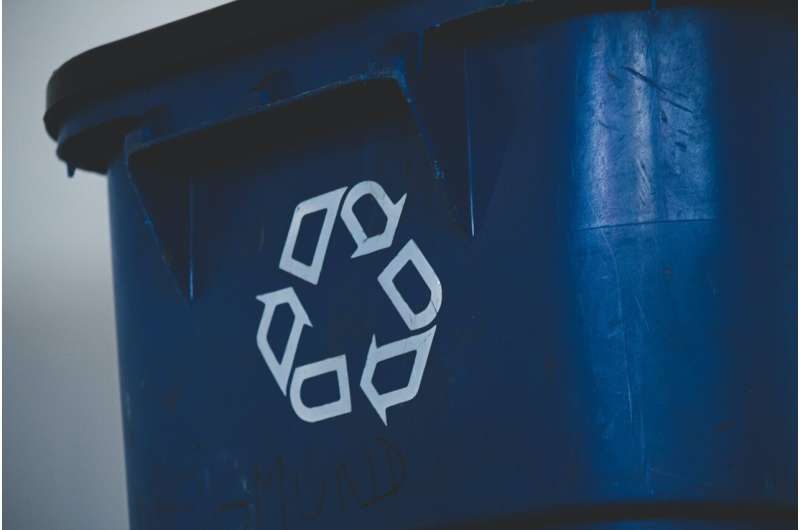
An international team of researchers from India and Singapore, led by Associate Professor Kheng Lim Goh from Newcastle University in Singapore, has examined the impact of plastic waste management on creating a new type of clean-energy device—the triboelectric nanogenerator. It compares recycling practices in Singapore and India, highlighting the importance of waste policies and infrastructure for successful recycling of plastics for making the clean-energy device. Challenges include contamination and decreased material quality with recycling.
This study examined the far-reaching consequences of plastic waste management and recycling practices on the production of clean-energy harvesting devices. Specifically, it focuses on comparing the use of recycled polyethylene terephthalate (PET) in the manufacturing of triboelectric nanogenerators (TENG) in Singapore and India, two densely populated Asian countries with significant economies. The findings have been published in Environmental Science and Pollution Research.
In 2019, Singapore generated a staggering 930,000 metric tons of plastic waste, but disappointingly, only 4% of this waste was recycled, while the rest was incinerated. On the other hand, India produced a massive 8.6 million metric tons of plastic waste, with an impressive 70% being recycled. Both countries have set ambitious recycling targets and implemented distinct waste management regulations.
The findings of the study emphasize that effective waste policies, legislative frameworks, and the responsibility of stakeholders, along with the heterogeneity of collection systems and infrastructure, play a pivotal role in ensuring successful recycling efforts. However, recycling plastic presents numerous challenges, including the need for proper segregation, concerns regarding adulterants, and the degradation of the macromolecular structure. These factors can significantly impact the properties of the recycled materials, posing difficulties in manufacturing high-quality products.
To evaluate the economic and mechanical potential of recycled PET, a model was developed. The model projected a 30% decrease in material performance and a substantial 65% loss of economic value after the first recycling cycle. As subsequent recycling cycles occur, the economic value diminishes further, correlating with a decline in the mechanical performance of the plastic. Ultimately, the economic value reaches zero.
To explore the integration of TENG technology into the circular economy, the researchers employed a model to estimate the production potential of aerogel mats derived from discarded PET bottles in Singapore and India. Astonishingly, the model suggests that approximately 20 million and 7,300 billion pieces of aerogel mats could be manufactured from the PET bottles disposed of in Singapore and India, respectively. This production capacity would be sufficient to create small-scale TENG devices capable of serving the energy needs of the entire population in both countries.
More information:
Wei Liang Lai et al, Roadmap to sustainable plastic waste management: a focused study on recycling PET for triboelectric nanogenerator production in Singapore and India, Environmental Science and Pollution Research (2022). DOI: 10.1007/s11356-022-20854-2
Provided by
Newcastle University in Singapore
Citation:
A roadmap to sustainable plastic waste management for triboelectric nanogenerator production (2023, June 23)
retrieved 23 June 2023
from https://techxplore.com/news/2023-06-roadmap-sustainable-plastic-triboelectric-nanogenerator.html
This document is subject to copyright. Apart from any fair dealing for the purpose of private study or research, no
part may be reproduced without the written permission. The content is provided for information purposes only.
Stay connected with us on social media platform for instant update click here to join our Twitter, & Facebook
We are now on Telegram. Click here to join our channel (@TechiUpdate) and stay updated with the latest Technology headlines.
For all the latest Technology News Click Here
For the latest news and updates, follow us on Google News.
